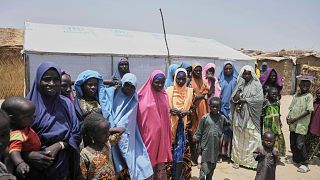Rwanda Tutsi Genocide
Two investigating judges sitting in Paris cited a lack of evidence in dismissing the case Thursday.
The dismissal means 82-year-old Agathe Habyarimana's chance of geting tried for conspiracy to commit the 1994 genocide in Rwanda has significantly reduced.
The National Anti-Terrorism Prosecutor's Office said it would appeal the decision.
In the dismissal order, the judges said there was no evidence pinning Habyarimana as a genocide perpetrator, but only as a victim of a terror attack in which her husband - then President Juvenal Habyarimana - was killed.
Habyarimana's assassination in a plane bombing on April 6, 1994, sparked the genocide in which approximately 800,000 individuals — primarily Tutsis and moderate Hutus—were killed.
A complaint filed in 2008 by the Civil Parties Collective for Rwanda (CPCR) prompted a French investigation into her alleged complicity in genocide and crimes against humanity.
In February 2022, the investigating judge declared the case closed, indicating a probable dismissal. The defense contended that the duration of the investigation was excessive.
Nevertheless, in August 2022, the anti-terrorism prosecutor's office sought additional hearings and cross-examinations, labeling it one of the most intricate cases still being examined.
During the genocide in 1994, approximately 800,000 individuals—primarily Tutsis and moderate Hutus—were killed by the Rwandan Armed Forces and extremist Hutu militias.











01:13
Congo prosecutor seeks death penalty for former President Joseph Kabila
02:09
Peace efforts stall as violence escalates in Eastern DRC
01:02
Stalled peace talks in Doha as Congo and M23 remain deadlocked
01:02
Kabila faces $24B claim in DR Congo treason trial
01:13
DR Congo and M23 rebels miss deadline to reach peace agreement
Go to video
New negotiations between DR Congo and M23 rebels to take place in Qatar